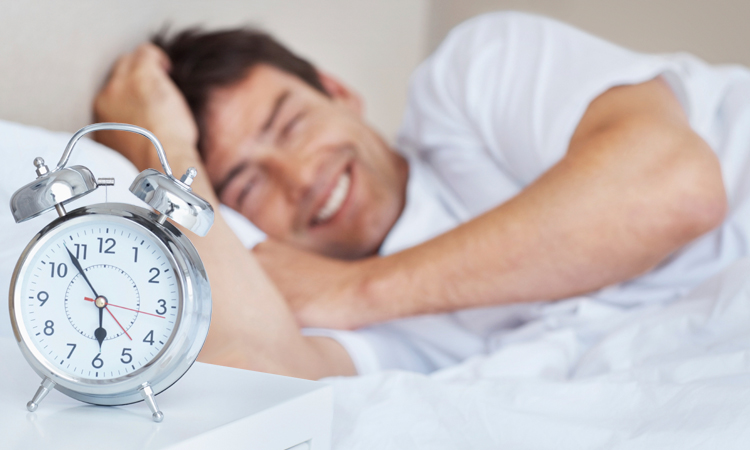
The alarm bell rings. You reluctantly get out of bed, slam the snooze button and pull the comforter over again. “Five more minutes,” you tell yourself. The alarm rings again after ten minutes, and you hit the snooze button again. It seems like it’s impossible to wake up early.
This is the morning routine for many people. Yep many want to develop the discipline of getting up earlier, because it is tied to healthy activities such as exercise, reading, and meditation.
So, why is getting up so hard? The answer partly lies in our genes. Genetics play an important role in our sleep-wake cycle. Our sleeping habits are largely regulated by the internal body clock in the brain. Typically, a person’s body clock is set to 24 hours, but it can run faster. Those people wake up earlier, are most productive during mornings, and are often referred to as larks. In others, the clock runs slower. These “evening people” tend to wake up later. But it’s not just genetics that governs the cycle—age, lifestyle, and work schedules have an impact, too. There are obviously many benefits of getting up early. A 2009 study published in the Journal of Applied Social Psychology[1] showed that morning people are more proactive. A 2012 Emotion study[2] found morning people were in general happier and healthier than those who awoke later and were more of “evening” people.
So, we get the importance of rising early, but what about the unfortunate ones among us who are night owls by nature? Should we interfere with our biology? “It is only worth it if your job or social life requires that you do,” says sleep expert Robert Rosenberg, D.O., FCCP. Don’t worry: with a few adjustments, you can turn the odds in your favor.
Here are some useful tips to help you wake up early:
- Gear up for change: Don’t expect changing your waking time to be easy. Start with little changes. “Darkness and quiet at night and bright light upon arising help to reset your circadian rhythms,” says Rosenberg. He suggests not returning to your night-owl habits on weekends. “During the transition period, if you are sleepy or fatigued, use a 20-minute power nap to help keep yourself alert during the day,” he says.
- Make your mornings inspiring: When you get up in the morning, you should have something to look forward to. Akram Alashari, a trauma surgeon at the University of Florida, who on most days works from 6 a.m. to 6 p.m., suggests waking up to the Rocky theme alarm bell. “Make your alarm empowering,” Alashari adds. Keep a list of positive affirmations by your bedside. Read them out once you’re awake.
- Practice good sleep hygiene: Irrespective of what time you wake up, it’s imperative to maintain sound sleep hygiene. Performance psychologist Leslie Sherlin, Ph.D., says, “By increasing the quality of your sleep, you make sleeping much more efficient. The result is an effortless, early morning.” Make sure all electronic devices are switched off and that you sleep at least seven hours. “These basics can make a big difference even if you’re a natural night owl,” says Sherlin.
- Ask for help: Your early-morning ambitions won’t likely be accomplished overnight, and you will most likely need some external help. “Don’t try to change too much too fast, says Mercy Medical Centre-affiliated internist Marc Leavey, M.D. “Light-blocking curtains and co-operative family members can also help you achieve your target.” You can ask a close friend or a family member to call you in the morning at an agreed time every day for a month, or just ask them to check up on you at a certain hour to see if you’re awake.
- Reward yourself: Try some positive feedback tricks. Washington, D.C.-based licensed psychologist Alicia Clark suggests giving yourself a reward when you do get up early. “Have your coffee pot ready to go, or mentally envision that great feeling of meeting your goal for waking up early – getting to the office before anyone else, getting your workout finished in enough time, or simply watching the sunrise,” she says.
- Catch that morning plane: If you normally wake up at 6 a.m., and need to wake up at 4 a.m. to leave for a trip, then going to sleep two hours earlier the night before may not be enough. “You will lie there, tossing and turning, and wake up a wreck,” says Leavey. “So, for several nights before the event, start retiring about 30 minutes early, and waking up 30 minutes early.”
So, what time are you getting up tomorrow?
To find out about Rose’s thoughts on how to live a happier life, click here
References:
http://www.nlm.nih.gov/medlineplus/magazine/issues/summer12/articles/summer12pg20.html
http://psycnet.apa.org/index.cfm?fa=buy.optionToBuy&id=2012-02789-001
http://healthysleep.med.harvard.edu/healthy/science/variations/individual-variation-genetics
http://onlinelibrary.wiley.com/doi/10.1111/j.1559-1816.2009.00549.x/abstract
[1] Christoph Randler, “Proactive People Are Morning People,” Journal of Applied Social Psychology 39 (December 2009): 2787-2797.
[2] Renee K. Biss & Lynn Hasher, “Happy as a lark: Morning-type younger and older adults are higher in positive affect.” Emotion 12(3) (June 2012): 437-441.



1 Comment